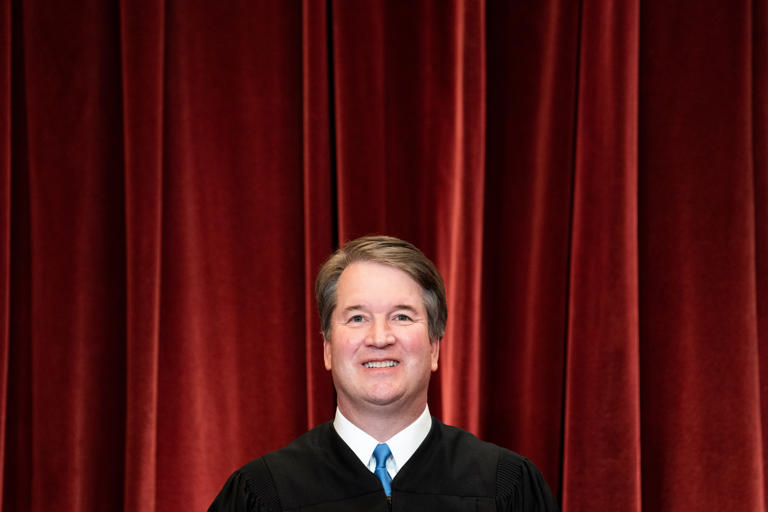As the U.S. Supreme Court deliberates over former President Donald Trump’s claims of immunity from criminal prosecution, Justice Brett Kavanaugh’s past opinion on presidential immunity has come under scrutiny.
Kavanaugh’s stance, articulated in a 2009 legal review, sheds light on his perspective regarding the legal protections afforded to sitting presidents.
In his article published in the Minnesota Law Review over a decade ago, Kavanaugh argued in favor of protecting sitting presidents from prosecution, citing the arduous nature of the presidential role and emphasizing the availability of the impeachment process as a means of accountability.
He emphasized that no single prosecutor, judge, or jury should have the authority to undermine the constitutional assignment of accountability to Congress.
During the recent oral arguments in Trump v United States, Kavanaugh raised questions regarding the explicit source of presidential immunity in the Constitution and whether certain aspects of presidential powers are immune from criminalization.
Notably, Kavanaugh’s 2009 article advocated for deferring prosecutions against sitting presidents until the conclusion of their term, rather than exempting them entirely from legal scrutiny.
While Kavanaugh’s past writings offer insight into his general views on presidential immunity, legal experts caution against directly extrapolating his stance to the current case involving Trump. Alex Badas, a Supreme Court expert and professor at the University of Houston, highlighted the distinction between academic writings and judicial decisions, noting that Kavanaugh’s article proposes broad interpretations of the law, whereas court rulings focus on specific applications.
Badas also pointed out the possibility of Kavanaugh’s evolving perspective, highlighting that the article penned 15 years ago does not bind him to a particular legal position. Moreover, the timing of Trump’s legal battle, occurring after his presidency, introduces complexities regarding the applicability of presidential immunity to former officeholders.



